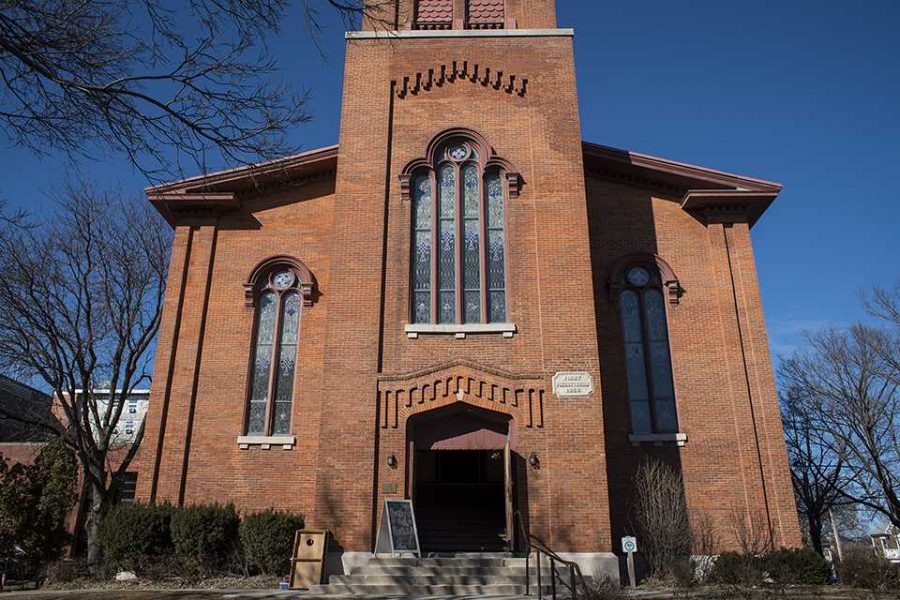A new Racial Justice Center is set to open in Old Brick in February.
By Paige Schlichte
paige-schlichte@uiowa.edu
A new center in Iowa City aims to improve racial justice in the Iowa City and the UI communities.
The Racial Justice Center, which is being created by the Episcopal Diocese of Iowa, is slated to open in February and be housed in Old Brick.
Meg Wagner, the communications coordinator for the Episcopal Diocese and a part-time priest-in-charge at Grace Episcopal Church in Cedar Rapids, said the idea for the center came from the diocese’s focus on racial equality in recent years.
Wagner said local officials recently received word that the Episcopal Church has given them a grant of $75,000 for the center.
“The idea for the center came from Rev. Susanne Watson Epting and I talking about how we can move our denomination to help racial justice and provide a good resource for the town we live and work in,” Wagner said. “The whole denomination has rededicated itself to this work of racial justice, healing, and reconciliation.”
Dianne Dillon-Ridgley, a former national chair of racial justice for the YWCAs in the U.S., said the movement began in the Episcopal Church with Bishop Desmond Tutu.
Tutu won the Nobel Peace Prize in South Africa for his work at breaking down racial barriers that had been created by the country’s apartheid regime, starting a massive peace, justice, and reconciliation process.
“This stirred a lot of people in Episcopalian communities, and it got them thinking, ‘What are we doing along those lines?’ ” Dillon-Ridgley said. “And it had an impact on people in Iowa, too.”
RELATED: Interfaith Alliance promotes equality, unity through Listening Tour
Epting, who is working with Wagner to create the center, said that while there is a growing number of residents of color in Iowa City, this works needs to be done all over the United States.
“While Iowa City sometimes likes to pride itself in being a liberal oasis, open to all, there is still work to be done,” Epting said in an email to The Daily Iowan. “We are a community of great privilege, and as demographics change, we simply must be more aware of the ways in which we still need to work for justice.”
The Episcopal Diocese owns Old Brick, where the center will be housed. Wagner said that though it is in the early stages, the center will approach racial justice in four different areas.
The first is telling the truth about race by offering resources for individuals to uncover their histories and tell their stories.
Proclaiming the dream is the second area, which includes publicly acknowledging what has been done and what remains to be done, and the third prong is practicing the way of love by offering training opportunities for youths across the state.
The final area is repairing the breach — finding the institutions that are broken and figuring out how to restore those systems through partnerships with other organizations.
“There are a lot of exciting possibilities because we have a space in the heart of campus to do this work,” Wagner said.
Dillon-Ridgley said she wants this to be a resource for people to get information, ask questions, and address issues surrounding race.
“Most of all, I want it to be a safe place,” Dillon-Ridgley said. “It’s clear we don’t know enough about all of the different cultures and faiths in our daily lives and communities.”



